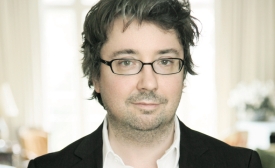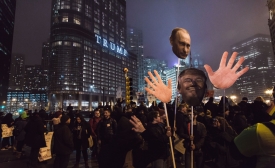us-russia relations

A Cold War tale of cultural exchange and music diplomacy.
US-Russia relations are facing considerable scrutiny during President Donald Trump'sfirst 100 days in office, filled with scandal over communications between key Trump aides and Russian officials and allegations of Moscow meddling in the 2016 election. But all of that was a world away Tuesday evening at the Russian embassy in Washington, as high school students from middle America participated in a rich cultural exchange.
Russia has repeatedly proposed cooperation on cybersecurity to the US, but has not received a positive response, according to Putin. "We hear these endless and groundless accusations of some kind of interference, talking about cybersecurity. [...] Putin told the Arctic forum he sees positive changes in cooperation between Russia and the United States on Syria
Despite the new U.S. President's well-known openness toward the Kremlin, I can think of no relationship where public diplomacy and exchanges are more important or harder to do than the relationship between the U.S. and Russia.

Nick Cull responds to a reader's questions on U.S.-Russia relations and global stability today compared to the Cold War.
With the election of Donald Trump to the presidency, the issue of U.S.-Russia relations is acquiring a new importance. Russia figured prominently in the discussion of the U.S. elections and in debates about the direction of American foreign policy. Now the central question is whether or not the possibility of warmer relations between the two sides—or even a new détente—exists? What would it take to adopt a fresh approach?







